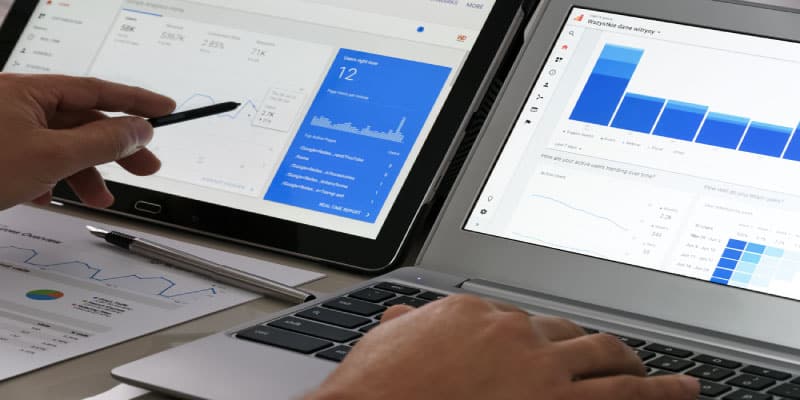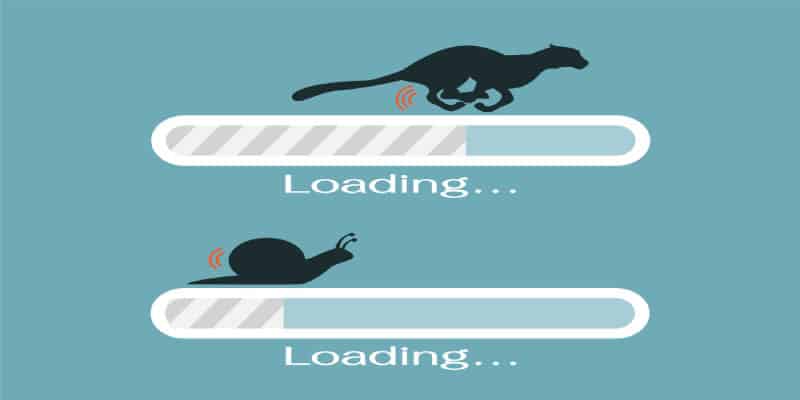15 Reasons Why Updating Your Website is So Important
Why is it so important to update my website? Glad you asked! For many business owners, updating their website seems like a pain. They worry about how much time it will take to update the content, change the design, and do all of those other things that go into creating an updated site.
But don’t let this fear stop you. There are numerous crucial reasons why you should ensure your website is up-to-date – 15 in fact. Read along to understand what these 15 reasons are and what happens if you fail to update your website.
Why You Should Always Update Your Website
You already know the importance of having a business website, and that’s why you already have one. Here are the 15 main reasons why you should keep your website updated.
#1. To Improve Your Website’s Visual Appeal
Your website’s visual appeal can either attract or repel people. If you have a site that looks like it was created in the 1990s, then your visitors will probably want to go somewhere else before they even bother reading anything on your page.
With better design and color schemes and updated pictures of products and staff members, you’ll attract more people to your site.
People want their websites to look modern and communicate that they are up-to-date with the times. If you fail to update your website’s design or have an updated one, then don’t be surprised when visitors leave immediately.
You can start by updating your logo using a new color scheme and an updated picture of your business. If you’re unsure where to start, some businesses specialize in website design and can help you out with a new look for your company’s webpage.
#2. To Align the Website with Your Changing Brand
Your website should align with your brand. If your business is professional and modern, the site design should reflect that same sense of professionalism and forward-thinking.
Essentially, it would help if you kept updating your website anytime you introduced a new product or service. This will keep people returning to your page repeatedly as they are made aware of any new products or services you have to offer.
#3. To Improve Your Website’s Speed
A slow-loading website can be a real turn-off to potential customers who see your webpage as taking too long before it loads. The faster the site, the better.
Google statistics show that 53% of mobile users expect a web page to load in less than three seconds, and they will abandon your site if it doesn’t. This shows how fast you lose potential clients to your business when you fail to upgrade your website speed.
It could be the way your website was made initially is affecting its load speed and contributing to the high bounce rates you’re experiencing. Updating your website will help you improve conversions and retain clients.
If you’re investing in money to promote ads, like Google Adwords, Facebook Ads, or Pinterest Ads, it will be less effective if people come and leave almost immediately.
A high-speed website would retain them and give them time for the adverts to kick in. Imagine how much more successful your advertising would be if you could retain them for a longer period.
#4. To Attract the Right Clients
Since your potential clients first meet your website before meeting you, it’s crucial to customize it to attract your target audience. If you want to attract the right clients, there are many factors you need to consider when updating it.
You would not want new visitors coming on board and leaving immediately because they could not find what they’re looking for on your site. Updating a website with relevant, useful content will help in attracting the right kind of clients.
You can include blogs with helpful tips, articles relevant to your industry, or anything else that would be interesting and educational.
Creating a blog is also an excellent way of establishing yourself as the expert in your niche so you can increase traffic to your website while engaging with clients on social media platforms like Facebook and Twitter.
#5. To Improve Your Website Security
Hacking and other cybercrime incidents pose a major threat to the survival of many businesses today. In fact, more than 80% of U.S. companies have reported successful incidents of hacking in the past few years.
With such a huge hacking and cybercrime threat, it’s only safe if you keep updating your website security system to protect your website and clients’ personal information. Clients will have faith in your business if they know that your website is always up-to-date with the latest security measures.
Your web hosting providers can also help you keep your website secure against hacking and other cybercrime, so make sure to work with them for this purpose.
You may want to ask about their anti-virus software, firewall protection system, backup services (in case of data losses or server crashes), and disaster recovery plan.
If you’re not confident about how to update your website, don’t worry. Your hosting providers can help you set up automatic updates for your site’s security measures at an affordable fee.
#6. To integrate it with Useful Apps
Cool business apps keep coming out every day. Your clients would be very happy to link your business services with these apps for convenience.
You would be able to, for example, sell your products on a mobile shopping app or use an app that allows you to take credit card payments online.
There are so many apps out there, and it’s definitely worth the time and effort if you update your website with them because they offer excellent benefits.
Website speed and attractive design aren’t just enough to keep your website easily navigable. An easily navigable website is also user-friendly and interactive.
When your website is updated with new features, you can expect an increase in visitors’ time on your site, which will eventually lead to better conversion rates. It might just be a slight touch of interactivity that makes all the difference.
If users find it difficult to navigate through your website or find it hard to find what they need, you can expect them to leave your website and visit one that offers a better user experience (UX).
This will reduce the number of daily visitors and contribute to poor conversion rates, which in turn affects the revenue your business generates through advertisements or sales.
#8. To Improve Your SEO Rankings
Today, search engines like Google are constantly updating their ranking algorithms. This means that what was working for your website last month might not work now or even next year. For this reason, you need to update the content on your site regularly to facilitate better rankings in the future.
The more fresh and up-to-date your website is, the more likely you will rank higher in SERPs. While improving your website’s SEO rankings is important, it’s also crucial to keep up with Google’s search engine algorithm trends.
Google makes major changes to its algorithm every six months, so you can make it a habit to update your website after that long. However, Google also makes some regular minor changes that may occur anytime.
In 2015 alone, Google released hundreds of changes to its search engine algorithm. Most of these updates are aimed at providing users with relevant and quality content on SERPs.
If you want to be more visible in SEO rankings over time, ensure that your website offers high-quality information. You can do this through a combination of regular website updates and SEO.

#9. To Easily Measure Your Website’s Effectiveness
Sticking to an old website might make things challenging when you want to measure how effectively your website is generating revenue. You will have to rely on old data that might no longer be relevant in today’s digital landscape by not updating your website.
Modern website tools can help you measure your website’s effectiveness and make it easier for you to make improvements over time. One way you can measure your website’s effectiveness is through the use of techniques like:
- Conversion tracking
- Heat mapping
- User recordings
Heat mapping, for example, can help you see where your website visitors are clicking and how they navigate through different sections of the site. With this information at hand, you will easily make necessary changes that improve the user experience on your website.
These tools should not replace traditional analytics programs, but it is important that you use them in conjunction with your analytics program for optimal results.
#10. To Gain More Control of Your Website
To gain more control of your website, you need to update it. This is because a new version will give you access to increased security and customization options that can be used for its improvement.
In addition, these updates provide the latest features on how to track user interactions and the information gathered from those interactions.
#11. To make it more Mobile Friendly
The largest percentage of internet users are mobile users. Since mobile devices continue to increase in popularity, making your website more mobile-friendly is a good idea.
You can do this by updating the site regularly as new versions of websites have been optimized for viewing various mobile phones and tablets.
In addition, updating your website will allow you access to the latest mobile-friendly tools and apps available.
#12. To Increase Brand Awareness
Updating your website is so important because it increases brand awareness through various tools, including social media and search engine optimization (SEO).
These things can help increase rankings with Google, driving traffic to your site from people searching for related content or products/services you provide.
This is among the most crucial reasons to update your website because it will help build loyal customers who become repeat buyers. And eventually, increase your revenue.
#13. To Beat Your Competitors
You might not see the need to update your website, maybe because things are running well in your business. However, your competitors won’t share the same sentiments. They’ll keep improving and optimizing their websites to beat you and take more clients to their sides.
If your website remains outdated even for a few months, your business can suffer many losses. Worse, it might even be outpaced by the competition and become obsolete in no time.
Updating and optimizing your website is especially important if you’re running a niche business where competition is stiff. A little show of reluctance on your side will see you lose your ranks.
#14. To keep up with Changing Legal Requirements
Your website should be updated to keep up with legal requirements that could impact your business or brand negatively in the future.
For example, if you have a data collection app and the law changes to require explicit permission for collecting user data, update your site accordingly.
This will help you avoid being penalized or fined by the law for violating its rules. You’ll also manage to tap on new favorable laws, such as tax laws that affect the use of some software or apps in their updated versions.
#15. To Optimize Your Website’s Call-To-Actions
Call to action buttons are crucial inclusions in your business’ marketing strategy. They are the main trigger for your users to take action and engage with brands.
For example, if you want people to subscribe to your email list, create a call-to-action button that says “Subscribe” or “Email Us” for closer interactions.
Since CTAs are so important in bringing your customers much closer to buying your products or services, you can’t manage to ignore them when updating your website.
You need to know how many of these to use on a website page and how to include them in your web pages strategically.

What Happens if You Fail to Update Your Website?
Whether it’s intentional or you just lacked the means to update your website, some consequences follow. Some of the common outcomes of not updating a website include:
-
Increased Hacking and Theft Rates
If your website is not updated, hackers will easily steal data or information from you. This can lead to increased identity theft in the United States and even in other parts of the world.
-
Decreased Traffic
The more popular search engines like Google, Bing, Yahoo!, etc., rank sites that are frequently updated higher than those not. This means that if your website is outdated, it will likely rank much lower than others, leading to decreased traffic rates.
-
Loss of Customers
Customers looking for a product or service will typically go to the site with the most updated information. If they do not find what they need, they may try somewhere else where they’ll get answers to their questions.
-
Failure to Meet Industry Standards
As technology evolves, so do industry standards and best practices. These include things like mobile responsiveness, website load times, and user experience. If your site does not meet industry standards, you could be facing a decrease in search engine rankings as well.
-
Decrease in Search Engine Rankings
Remember when we talked about how important websites are to stay updated? One of the top reasons this is so critical is that if your site isn’t updated, it could be at risk of being demoted in search engine rankings.
-
No Support for New Technology
If you are not up to date with the latest technologies and trends, your site will appear old-fashioned or outdated, leading visitors to believe that your business is no longer relevant or successful.
Final Thought
Today’s world is changing at an exponential rate, and to stay relevant, it requires that your website be updated constantly. If you fall behind on updates, it will only take a matter of time before people start forgetting about you.
Remember your website is your 24/7 employee and will always represent your business when your human employees are asleep. So make it the best thing a client first sees about your business.












